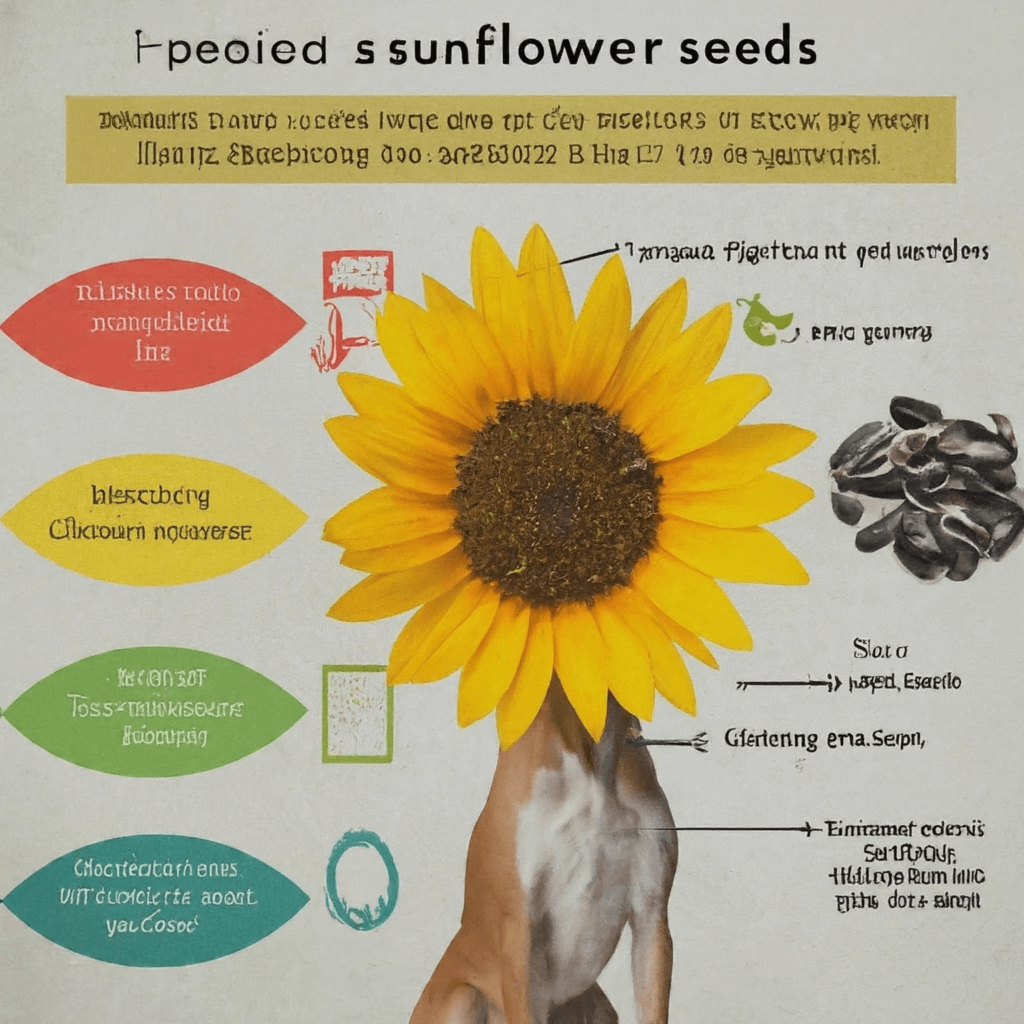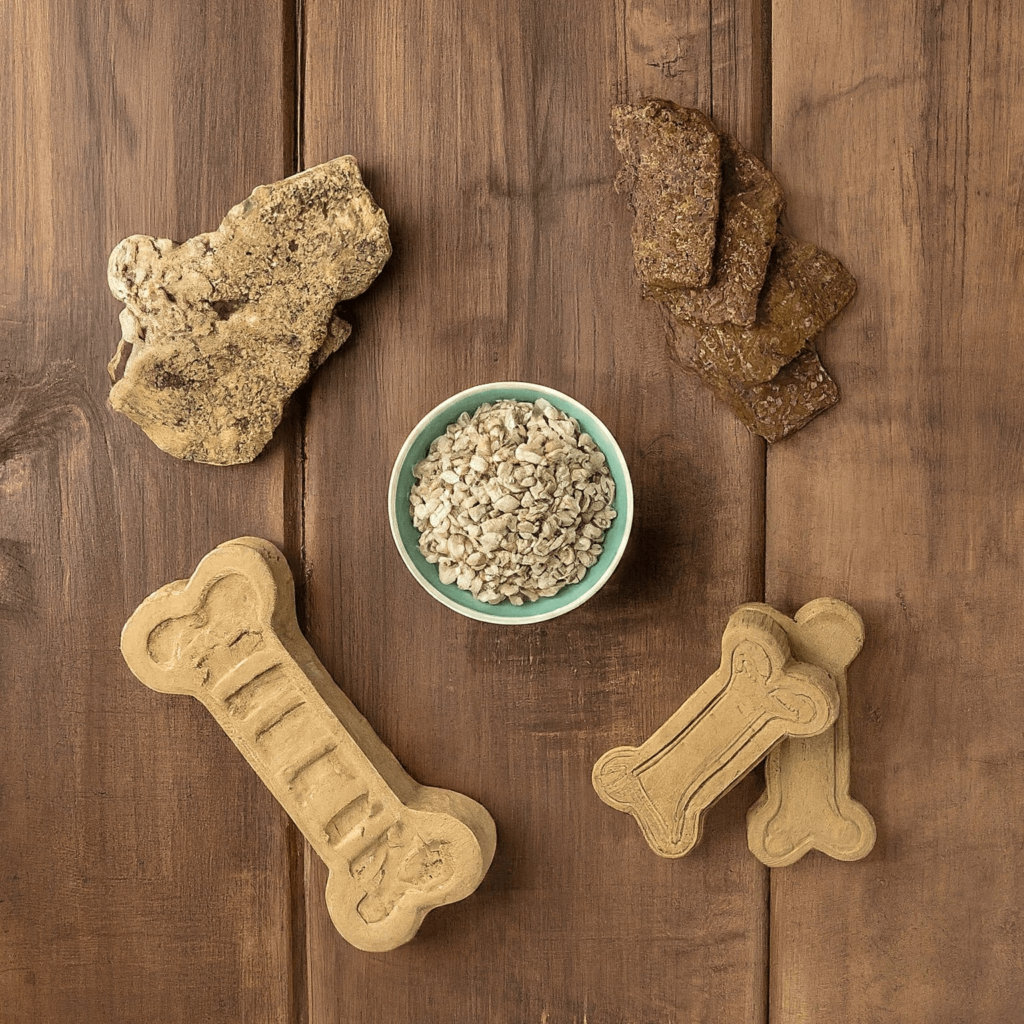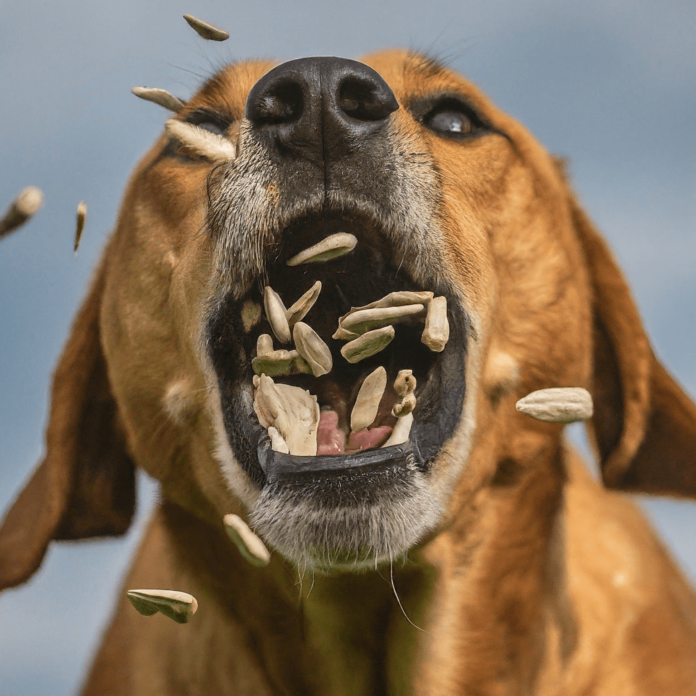Many dog owners love sharing their snacks with their furry companions. But when it comes to sunflower seeds, you might be wondering – are they safe for canine consumption? The answer, like many things related to dog diets, is a nuanced yes, with some important considerations. This guide explores everything you need to know about dogs and sunflower seeds, from the potential benefits to the associated risks.
Can Dogs Eat Sunflower Seeds? – Benefits & Risks
Sunflower seeds are a nutritional powerhouse for humans, packed with healthy fats, vitamins, and minerals. But can dogs reap the same benefits? Let’s break down the good and the not-so-good of sunflower seeds for dogs:
Benefits of Sunflower Seeds for Dogs:
- Nutrient Boost: Sunflower seeds are a good source of Vitamin E, an antioxidant that supports healthy skin and coat. They also contain linoleic acid, an essential fatty acid that contributes to overall health.
- Digestive Support: In moderation, plain sunflower seeds can aid digestion in some dogs.
- Training Treats: The small size and crunchy texture make sunflower seeds a fun and healthy training treat, especially for smaller dogs.
Risks of Feeding Sunflower Seeds to Dogs:
- Choking Hazard: Unshelled sunflower seeds pose a choking hazard, particularly for small dogs.
- Digestive Issues: The high-fat content of sunflower seeds can lead to stomach upset, diarrhea, or pancreatitis in some dogs, especially if consumed in excess.
- Sodium Overload: Salted sunflower seeds are a big no-no for dogs. Excess sodium can lead to dehydration, electrolyte imbalance, and even seizures.
- Shell Issues: The shells of sunflower seeds are difficult for dogs to digest and may cause intestinal blockages.
Can Dogs Eat Sunflower Seeds Safely?
The key to safely incorporating sunflower seeds into your dog’s diet lies in moderation and proper preparation. Here’s what you need to remember:
- Stick to Shelled Seeds: Only offer your dog shelled sunflower seeds. This eliminates the choking hazard of the shells and makes them easier to digest.
- Skip the Salt and Seasonings: Unsalted and unseasoned sunflower seeds are the way to go. Avoid flavored varieties that may contain harmful ingredients like garlic or onion powder, which are toxic to dogs.
- Portion Control is Key: Sunflower seeds should be an occasional treat, not a regular part of your dog’s diet. As a general guideline, offer small dogs (under 20 lbs) 10-20 seeds per week, and larger dogs (over 50 lbs) no more than 20-40 seeds per week.
- Consult Your Veterinarian: If you’re unsure about introducing sunflower seeds to your dog’s diet, always consult with your veterinarian. They can advise you on the appropriate amount based on your dog’s breed, size, and overall health.
Are Sunflower Seeds Good for Dogs?
Sunflower seeds, when offered in moderation and prepared safely, can be a healthy occasional treat for most dogs. They provide a good source of nutrients and can be a fun and engaging training reward. However, they are not a substitute for a balanced dog food diet and should not be a significant portion of your dog’s daily calorie intake.

Risks of Feeding the Dog Sunflower Seeds
Here’s a quick table summarizing the key risks associated with feeding your dog sunflower seeds:
| Risk | Details |
|---|---|
| Choking Hazard | Unshelled sunflower seeds can be a choking hazard for dogs, especially small breeds. |
| Digestive Issues | High-fat content can cause stomach upset, diarrhea, or pancreatitis in some dogs, especially if consumed in excess. |
| Sodium Overload | Salted sunflower seeds can lead to dehydration, electrolyte imbalance, and even seizures. |
| Shell Issues | Sunflower seed shells are difficult to digest and may cause intestinal blockages. |
FAQ: Sunflower Seeds and Dogs
Q: Can my dog eat sunflower seed butter?
A: Sunflower seed butter can be a safe treat for dogs in moderation, as long as it’s unsweetened and xylitol-free. Xylitol is an artificial sweetener that is toxic to dogs. A small amount (around a teaspoon for a medium-sized dog) can be spread on a chew toy or licked off a spoon.
Q: What should I do if my dog eats a lot of sunflower seeds?
A: If your dog manages to get into a stash of sunflower seeds, especially salted ones, monitor them closely for any signs of illness like vomiting, diarrhea, or lethargy. If you’re concerned about the amount they consumed, contact your veterinarian immediately.
Alternatives to Sunflower Seeds for Dogs

While sunflower seeds can be a healthy occasional treat for some dogs, they’re not the only option. Here are some safe and nutritious alternatives that your pup might enjoy:
- Vegetables: Many crunchy vegetables make excellent, low-calorie treats. Consider chopped carrots, green beans, celery sticks, or broccoli florets (in moderation, as too much can cause stomach upset).
- Fruits: Small slices of apple, banana, or pear can be a refreshing treat. Just remember to remove the pits or cores, which can be harmful.
- Air-Popped Popcorn: Plain, air-popped popcorn is a healthy, low-fat option that most dogs love. Skip the butter, oil, and seasonings, though!
- Dried or Frozen Fruits: Dried cranberries, blueberries, or mango slices offer a chewy and flavorful treat. Just be sure they are unsweetened and free of added sugars. Frozen fruits like blueberries or banana chunks can be a refreshing summer treat.
- Dehydrated Meat Treats: Commercially dehydrated meats like beef jerky or chicken tenders are a protein-packed alternative. Choose treats with minimal ingredients and avoid ones with artificial flavors or preservatives.
- Commercial Dog Treats: There are countless commercially available dog treats formulated with healthy ingredients and enticing textures. Look for treats that are appropriate for your dog’s size and age.
Remember: Always introduce new foods to your dog’s diet gradually, starting with a small amount to monitor for any allergic reactions or digestive upset.
Comparison of Sunflower Seeds and Healthy Alternatives
| Treat | Benefits | Considerations |
|---|---|---|
| Sunflower Seeds (Shelled, Unsalted) | Vitamin E, Linoleic Acid, Digestive Support | High-Fat Content, Choking Hazard (Unshelled), Not a Substitute for Balanced Diet |
| Chopped Vegetables | Low-Calorie, Vitamins & Minerals | Introduce Gradually, Some May Cause Stomach Upset (e.g., Broccoli) |
| Sliced Fruits | Vitamins, Antioxidants | Remove Pits/Cores, Moderate Amounts (High in Sugar) |
| Air-Popped Popcorn | Low-Fat, Fiber | Skip Butter, Oil & Seasonings |
| Dried/Frozen Fruits | Vitamins, Antioxidants | Unsweetened, Free of Added Sugars (Dried) |
| Dehydrated Meat Treats | Protein-Rich | Choose Treats with Minimal Ingredients |
| Commercial Dog Treats | Variety of Options, Convenient | Read Labels Carefully, Choose Age & Size Appropriate |
By offering a variety of healthy and safe treats, you can keep your furry friend happy and well-nourished!



